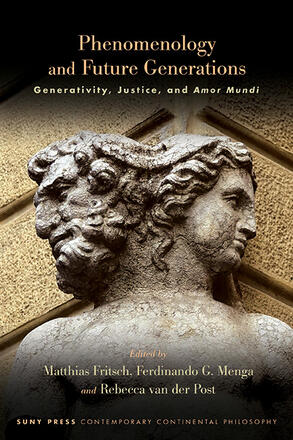
Phenomenology and Future Generations
Generativity, Justice, and Amor Mundi
Alternative formats available from:
Demonstrates the fertility of the phenomenological tradition of philosophy for intergenerational justice and climate ethics.
Description
In the face of widespread environmental and social destabilization and growing uncertainty about the future of humanity, this collection of essays brings the philosophical tradition of phenomenology to the question of relations between generations to examine our ethical, political, and environmental obligations to future people. Emphasizing phenomenology's rich reflections on the role of time in the constitution of the social-historical world and its relation to the environment, the essays interweave the central themes of mortality, natality, generativity, and amor mundi to build vital bridges between new developments in both eco- and critical phenomenology and important work in intergenerational ethics. Together, the chapters reevaluate the traditional scope and foundational concepts of environmental ethics and social justice, paving the way for a revised understanding of intergenerational responsibilities, culminating in the key insight that future people are of us. The result is an invaluable conceptual toolkit for phenomenologists, ethicists, theorists, students, and activists concerned with environmental justice and climate ethics.
Matthias Fritsch is Full Professor of Philosophy at Concordia University, Montreal. Among other books, he is the author of The Promise of Memory: History and Politics in Marx, Benjamin, and Derrida, also published by SUNY Press. Ferdinando G. Menga is Full Professor of Legal Philosophy and Philosophy of Politics at the Law School of the University of Campania Luigi Vanvitelli, Italy. He is the author of Ausdruck, Mitwelt, Ordnung, among many other books. Rebecca van der Post is a concert violinist and doctoral candidate in Interdisciplinary Humanities (HUMA) at Concordia University, Montreal.
Reviews
"The range of positions, arguments, and thinkers covered in Phenomenology of Future Generations is impressive and, in many instances, brings to attention a number of important thinkers in the wider field of intergenerational justice, Levinas here primarily among them. Given that the field of intergenerational justice is mainly dominated by non-Continental references and traditions, this volume will open the door to further intersections among these vantage points."—Nicolas De Warren, author of German Philosophy and the First World War